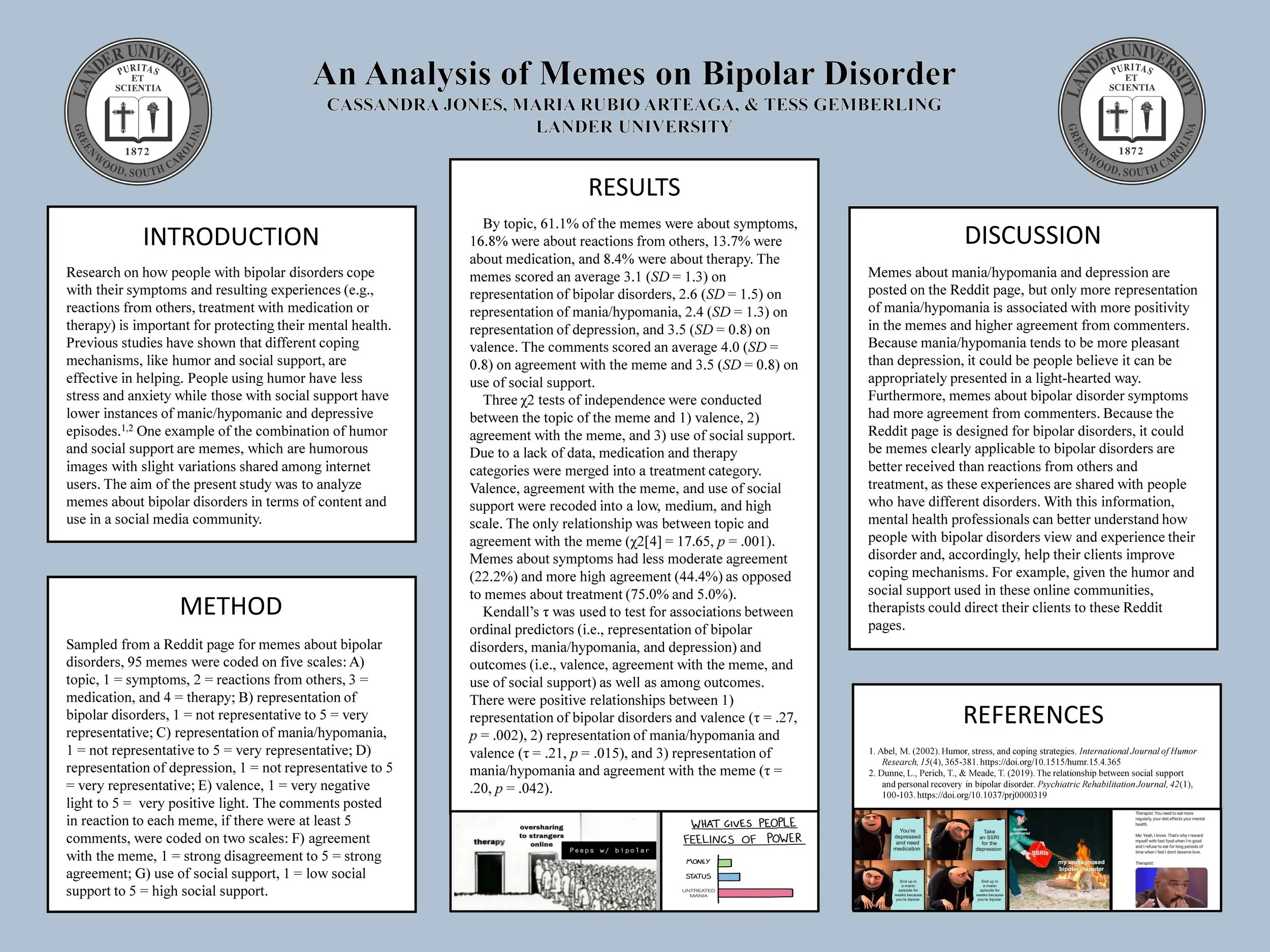An Analysis of Memes on Bipolar Disorder
Cassandra Jones, Maria Rubio Arteaga
This project was presented at the Southeastern Psychological Association conference in Orlando in March 2024.
Research on how people with bipolar disorders cope with their symptoms and resulting experiences (e.g., reactions from others, treatment with medication or therapy) is important for protecting their mental health. Previous studies have shown that different coping mechanisms, like humor and social support, are effective in helping. People using humor have less stress and anxiety while those with social support have lower instances of manic/hypomanic and depressive episodes.1,2 One example of the combination of humor and social support are memes, which are humorous images with slight variations shared among internet users. The aim of the present study was to analyze memes about bipolar disorders in terms of content and use in a social media community.
Casey Jones is a graduating psychology major from Spartanburg. She served as an officer in the Honors College Leadership Council and the Animal Advocates Club, and as a Psychology 101 Supplemental Instructor. She also completed three HR internships at Purpose Financials and volunteered for the Greenwood Humane Society. Frequently appearing on the President's List, Casey also spent a semester abroad at the University of Winchester in England. She presented research at a regional conference and recently received the Outstanding Initiative in Experiential Learning in Psychology Award. Casey plans on a career in human resources.
Maria Rubio is a graduating psychology and Spanish double major from West Columbia. She served as a Presidential Ambassador, LINK peer leader, Animal Advocates co-president, psychology teaching assistant, Psi Chi Honor Society co-president, and Honors College Leadership Council executive chair. She interned for both the USC Enhancing Capacity in School Mental Health Program and the National School Choice Awareness Foundation. She received a number of scholarships and awards here at Lander. Maria also studied abroad in Madrid, Spain. After graduation, she will begin graduate school at USC to earn her master’s and specialist degrees for K-12 School Counseling.
